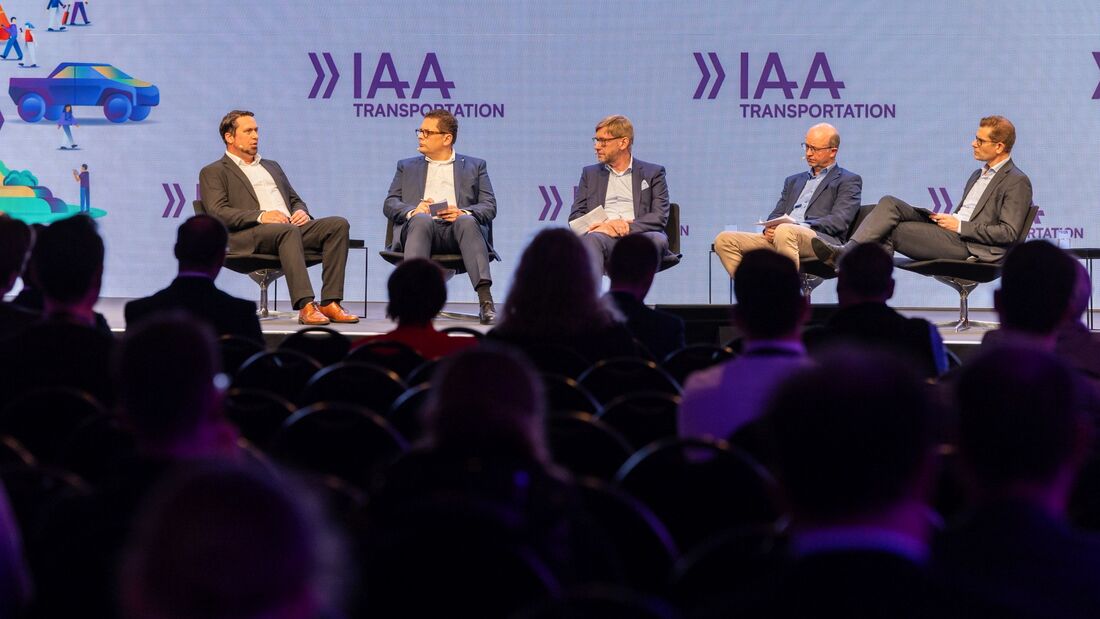Fleet operators want to invest in vehicles with alternative drives. This is the result of a survey by the DSLV Federal Association of Freight Forwarders and Logistics and the Sustainable Heavy Goods Transport Platform of the German Energy Agency (Dena). But what do freight forwarders need to ensure that the transformation in the transport sector really succeeds? Industry representatives discussed this question on Thursday on the Main Stage.
Frank Huster, General Manager of the DSLV Federal Association of Freight Forwarders and Logistics, shared the experiences of the DSLV member companies. According to Huster, three parameters must be given for an electric truck to be an advantage: Is there a real environmental advantage in the Scope3 analysis? Is there a comprehensive infrastructure? Is the total cost of ownership (TCO) correct? The electric truck has a small advantage over other alternative forms of drive among freight forwarders. 76 percent of the study participants could imagine investing in an electric truck. Hydrogen combustion engines and vehicles with fuel cells are an option for more than half of the companies surveyed. The most important issue, however, is financing. "What do freight forwarders need? Above all, they need capital," said Huster. The KsNI funding was an important stimulus. "But everyone who has not benefited from it is in a waiting position," Huster said.
Fleet operators would need a lot of capital, time and planning stability with regard to future electricity prices. Dr. Michael Bargl, Managing Director of the general cargo cooperation IDS Logistik, confirmed: "We need electricity and, above all, at affordable prices." In the industrial areas, where several competitors often operate at the same time, there is not enough electricity available. "We have the feeling that this is all extremely regional and the local energy supplier decides," said Bargl. There is a lack of a controlling hand in Germany when it comes to local electricity supply. Improvement is needed on the subject of electricity supply. Bargl would also like to see more funding and two more years of toll exemption for electric trucks.
Drive systems of the future
Which form of propulsion will prevail in the future? Johannes Daum, Head of Hydrogen, Alternative Fuels & Fuel Cells at NOW GmbH, advocated a mix of infrastructure and application technologies. A charging infrastructure for electric trucks and a reliable network of filling stations for hydrogen trucks must be created. The time pressure is somewhat greater for electric trucks. "The infrastructure for hydrogen filling stations can be set up more easily if there is a need," Daum said. In principle, the infrastructure always has to be a little ahead of schedule so that it can serve the vehicles in operation.
What remains is the pressing question of vehicle costs. According to Lukas Walter, Senior Vice President Sales Truck at MAN Truck & Bus, vehicles with alternative drives will always be a little more expensive than diesel vehicles. "I don't see a high probability of price jumps in this decade," Walter said.





